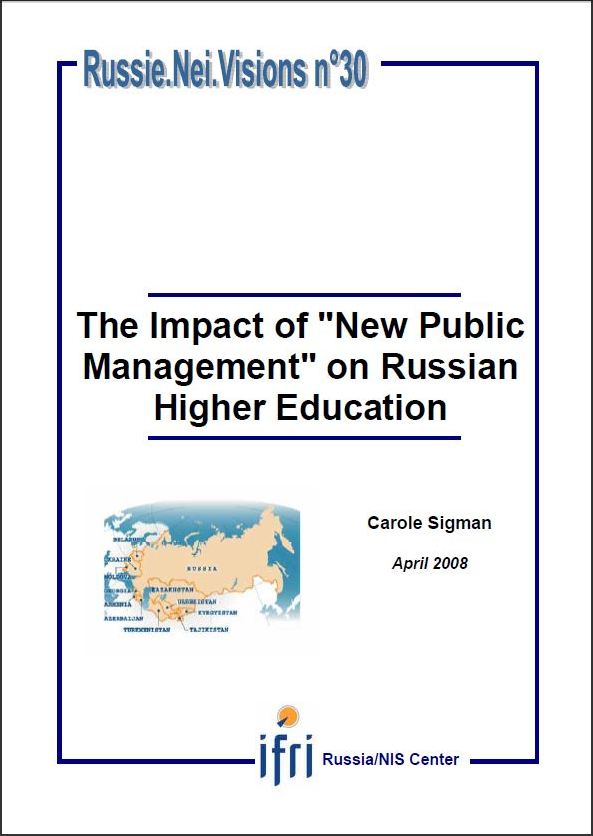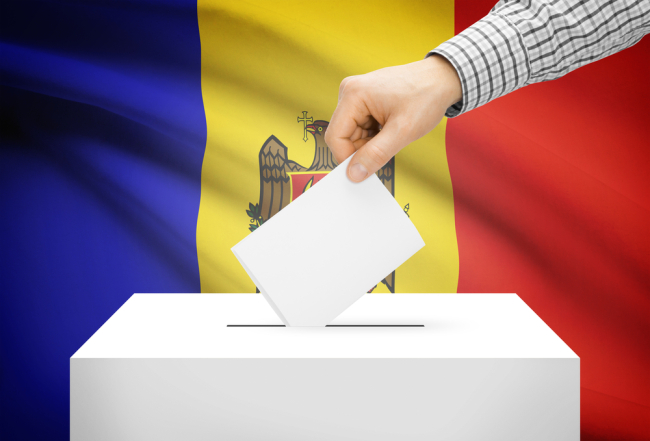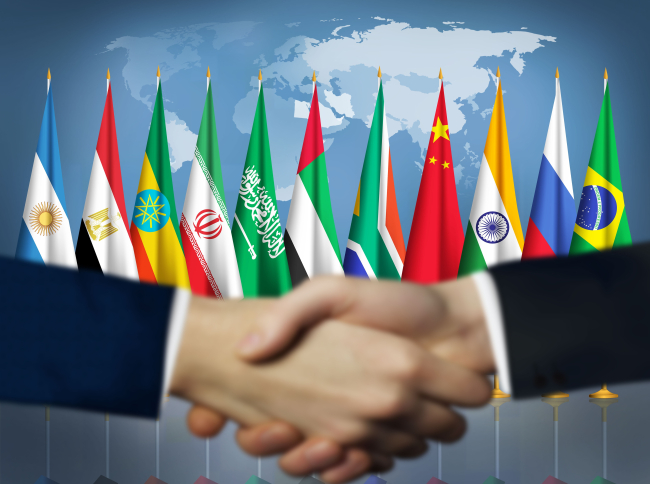The Impact of "New Public Management" on Russian Higher Education

The higher education reform underway in Russia is part of a much broader state reform project. Launched in 2004 at the start of Vladimir Putin's second term, this "administrative reform" grants the federal state the means to reclaim the public sphere, which largely escaped from its control during the 1990s. Energy incomes having considerably improved the public finances in the 2000s, the state can now consider reinvesting in and restructuring the public sphere as a whole. Its involvement cannot be seen as the construction of a "welfare state," but comes rather closer to an entrepreneurial state at the head of sectorial trusts aiming to be competitive on global markets. Such as it appears today, the restructuring of higher education is key to understanding how the formation of this entrepreneurial state is conceived and what possible structural uncertainties could arise.
This paper is based on the seminar presentation "Higher Education in Russia, Potential and Challenges," which took place on 28 January 2008 at the Institut français des relations internationales (Ifri).
Download the full analysis
This page contains only a summary of our work. If you would like to have access to all the information from our research on the subject, you can download the full version in PDF format.
The Impact of "New Public Management" on Russian Higher Education
Related centers and programs
Discover our other research centers and programsFind out more
Discover all our analysesMoldova’s Foreign Policy after 2024 Presidential Elections: Staying on the EU Path, Moving Eastwards or Becoming Multi-vector?
The future of Moldova’s foreign agenda will undergo a stress test during the upcoming presidential elections on October 20, 2024.
Russian Strategic Thinking and Culture Before and After February 24, 2022: Political-Strategic Aspects
Written by Dimitri Minic, the scientific article "Russian Strategic Thinking and Culture Before and After February 24, 2022: Political-Strategic Aspects" in Russia’s war against Ukraine: Complexity of Contemporary Clausewitzian War by the National Defence University Department of Warfare, Helsinki 2024.
Russia and the New BRICS Countries: Potentials and Limitations of a Scientific and Technological Cooperation
At the fifteenth BRICS summit, held in Johannesburg, South Africa, from August 22 to 24, 2023, a resolution was adopted to extend an invitation to six new countries to join the organization: Argentina, Egypt, Ethiopia, Iran, Saudi Arabia, and the United Arab Emirates (UAE). All of these countries except Argentina duly became members of BRICS in 2024, with the expanded group known as BRICS+. In addition to the political and economic advantages, it is assumed that the incorporation of these new countries could potentially facilitate their scientific and technological development.
The South Caucasus: A New Strategic Space?
The states of the South Caucasus are trying to find their footing in an increasingly fragmented international landscape.















